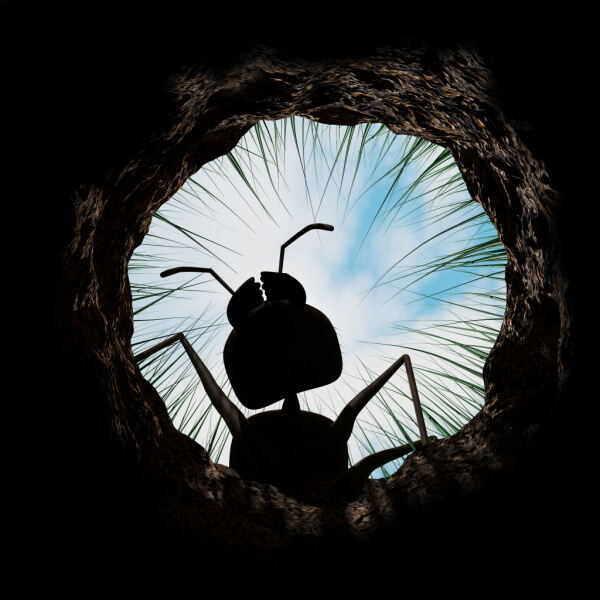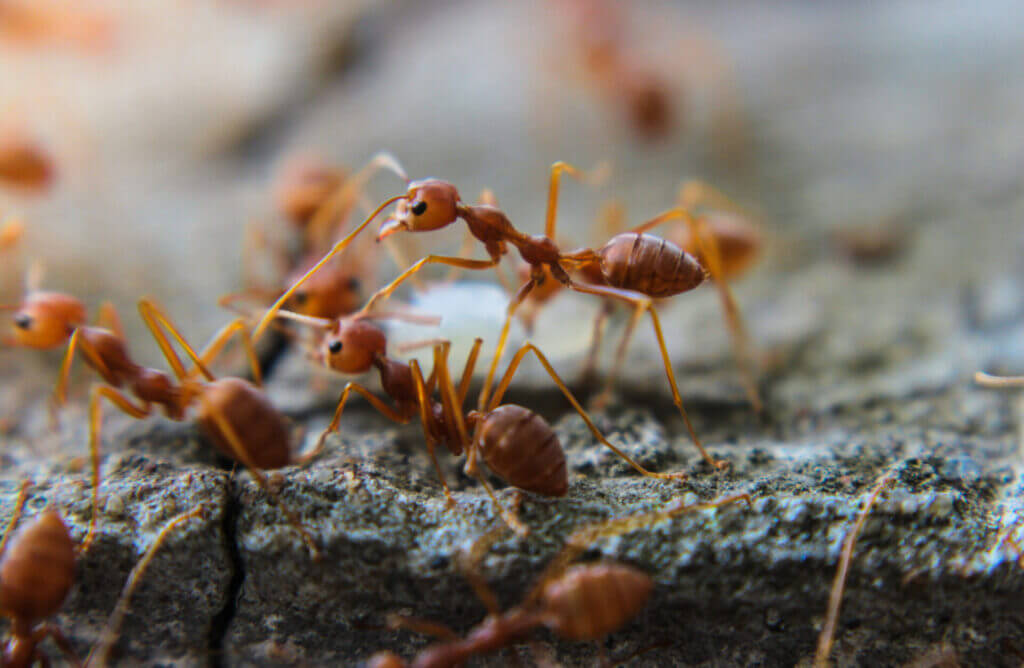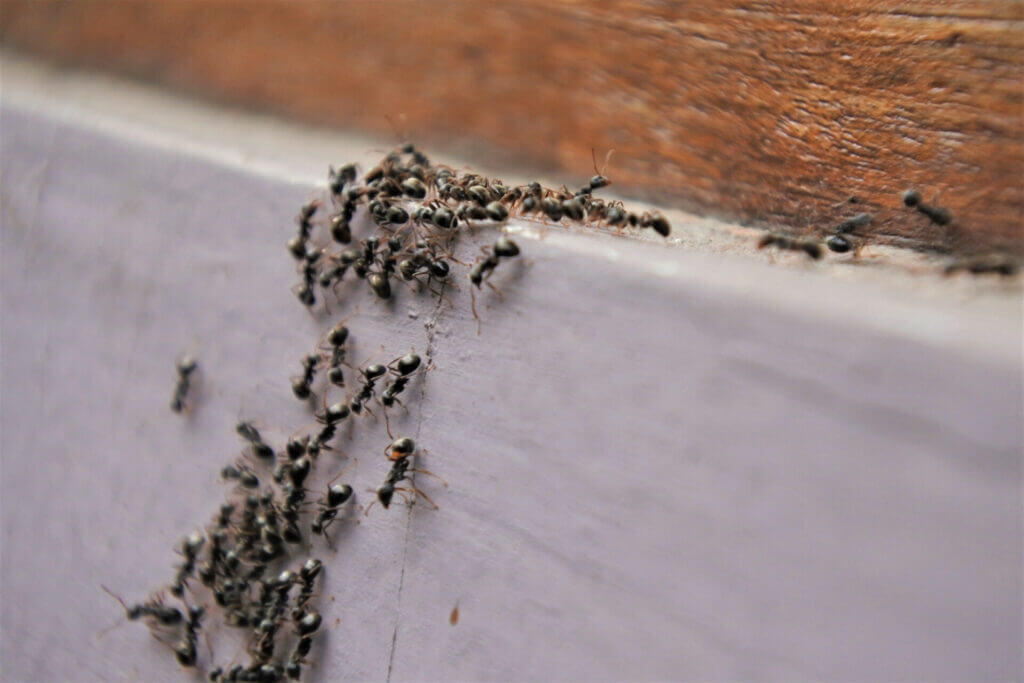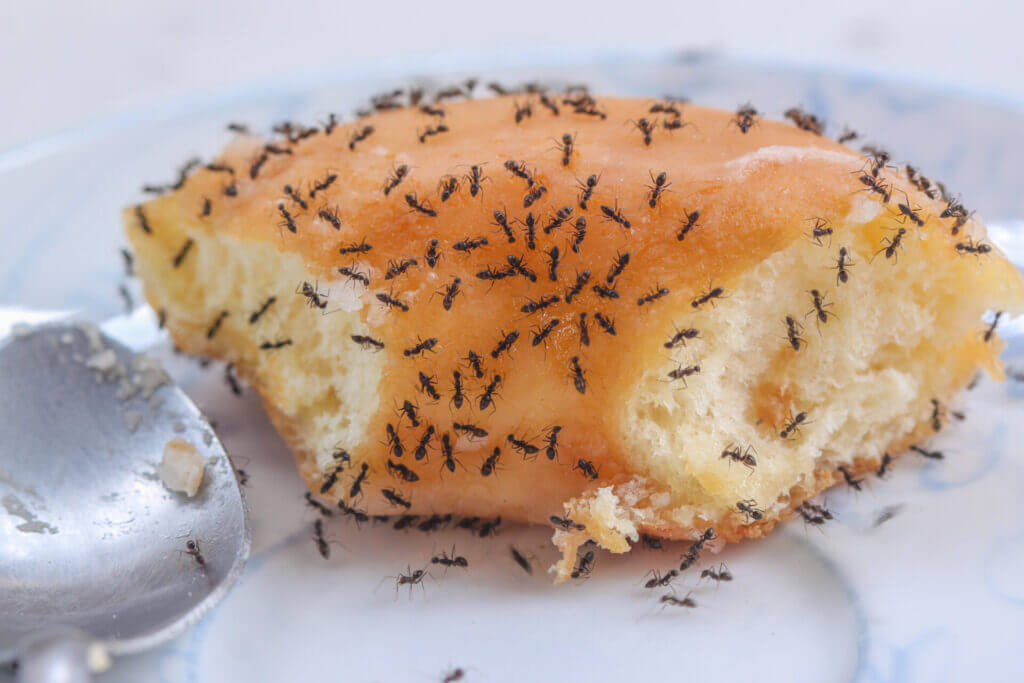Ant Control (indoor and garden)
For much of the year, Ants can be a serious problem, although they are considerably less active in the winter months.
You can choose which products suits your particular problem or call us for advice.
Here is some information and advice about dealing with an ant infestation.
In this article
Ant Basics – About Ants
There is one main Ant species that causes the most infestation issues in the UK, the Black Garden Ant (Lasius niger)
There are many other types of ants and it is fairly important to identify the type of ant you are dealing with in order to be able to resolve the problem.
Most people recognise the Common Black Garden Ant, but ants such as the Pharoah’s Ant will be much harder to identify and you may need to seek our help for anything other than the Black Garden Ant. We have many calls asking for a bait for Red Ants (European Fire Ants) now in 2023 we have taken on Advion Ant Gel (professional use) to offer a solution, this bait will also deal with Black Ants, Argentine Ant, Ghost Ant, Black Crazy Ant, Bigheaded Ant, Pavement Ant, Acrobat Ant and Carpenter Ants.
Incidentally, this ant does not restrict itself to the garden and is a major indoor pest, seeking food from your home, often, high sugar or protein content foods but any human food may attract an army of these little pests. It is very rare for this ant to nest indoors!
Most ant colonies have a queen, the queen stays in the nest, which in the case of the Black Garden Ant is generally located underground. You need to kill the queen in order to achieve total eradication of an ant problem and please consider that there could be more than one nest!
The queen ant lays many thousands of eggs during her extensive lifetime (up to 30years!)
Flying ants are mainly fertile female ants, bred in the nest in early spring, that leave the nests in May or June and fly high and spread to form new nests. Further information in the next section below.
Evaluation and preparation for treatment
Before commencing the treatment is is important to find where the Ant nest is located, if that is possible, as the closer to an ants nest the treatment is targeted the more successful it will be.
If the ants are inside the house and they are the black ant, follow their route source until it enters the structure of the building, ie: under the kitchen sink, then look outside the house in that immediate area to check if they are visibly evident outside, if so, keep following the route until it enters the ground. The nest should be near this point.
If there is no evidence of an ant run outdoors then your ant control treatment will need to be carried out mainly indoors.
If your treatment is going to be an indoor one using an ant killer spray, Pro-Active C for Ants remove any uncovered foods and unprotected eating/cooking utensils from the treatment area.
Ant bait stations we believe are always the best way to deal with Ants outdoors. We have bait stations for all types of Ants. For the typical black Ants we have the new version of the ever popular Maxforce LN’s now called Maxforce Pushbox.
Most ants nest outdoors. To keep them from migrating indoors, a little preventative maintenance is necessary. If your home is prone to ant infestation, spray an insecticide formulated specifically for outdoor ant removal around the outside perimeter of your house and include to spray any wall air vents and around window and door frames.
FLYING ANTS
Flying ants are usually a problem on hot days in May or June. Outdoors they are not something you can treat but indoors you may want to use a normal fly killer aerosol spray or insecticidal smoke generator.
Opening windows can resolve the problem as the flying ants actually desire to get into the air at high levels, so if they accidentally get into your home, releasing them is the easiest and greenest solution.
Try to find the access point and seal.
Effecting the Ant Control treatment
Having searched carefully you are now ready to tackle the ant problem. We strongly recommend the use of either OutCast or Maxforce Pushbox Ant Bait Stations, which are small plastic receptacles containing a gel which will be eaten by some ants and carried to feed the larvae and queen by other ants.
This bait can take one or two days to work as it is purposefully slow acting to allow the ants to carry it back to the nest and feed the ant larvae and hopefully the queen too. These can be used indoors and outdoors and we suggest two bait stations per nest of ants.
If you prefer a more rapid result, then we suggest our Pro-Active C Ant Killer spray, which is applied to all the areas where the ants are known to be moving. We do not suggest to use spray and stations as the bait will not get carried back to nest, so its very much one or the other.
This product, once applied and dry, will kill within hours of contact with the ants. It can be used inside the house and is safe to children and animals once dry.
When treating near or along the back of kitchen worktops, wipe down food prep areas with a damp disposable cloth/paper towel after the treatment and perhaps leave a small band of insecticide along the back of the work top.
Remove any live fish, or animals from the room being treated and return them after 4 hours.
We also suggest keeping children out of the treatment area for the same period of time.
All Ant Control Guides
Ant Control – FAQ’s
Signs of an ant infestation include seeing live or dead ants, finding ant trails or nests, or noticing a sweet or greasy smell.
Ants can enter homes through small openings or cracks in the walls, floors, or foundation. They may also be attracted to sources of food or water.
To prevent ants from entering your home, seal any potential entry points and remove any sources of food or water. Keep food stored in airtight containers and clean up any spills or crumbs promptly.
If you have an ant infestation, it is recommended to contact a pest control professional for assistance. Ants can be difficult to control once an infestation has occurred.
Ants do not typically carry diseases that can be transmitted to humans. However, they can be a nuisance and cause discomfort.
To get rid of ants, it is recommended to contact a pest control professional who can identify and eliminate the problem using a variety of methods, such as baits, traps, and pesticides.
Ants are not generally dangerous, but they can be a nuisance and cause discomfort. Some species, such as fire ants, can sting and cause allergic reactions in some individuals.
To prevent ants from returning, it is important to continue to seal entry points, keep food stored properly, and maintain a clean and clutter-free environment. Regular inspections and preventive measures can help to reduce the risk of an ant infestation.
While there are some home remedies that may help to deter ants, such as using essential oils or sprinkling salt or vinegar around entry points, they are generally not effective at completely eliminating an infestation. It is recommended to contact a pest control professional for the most effective solution.







